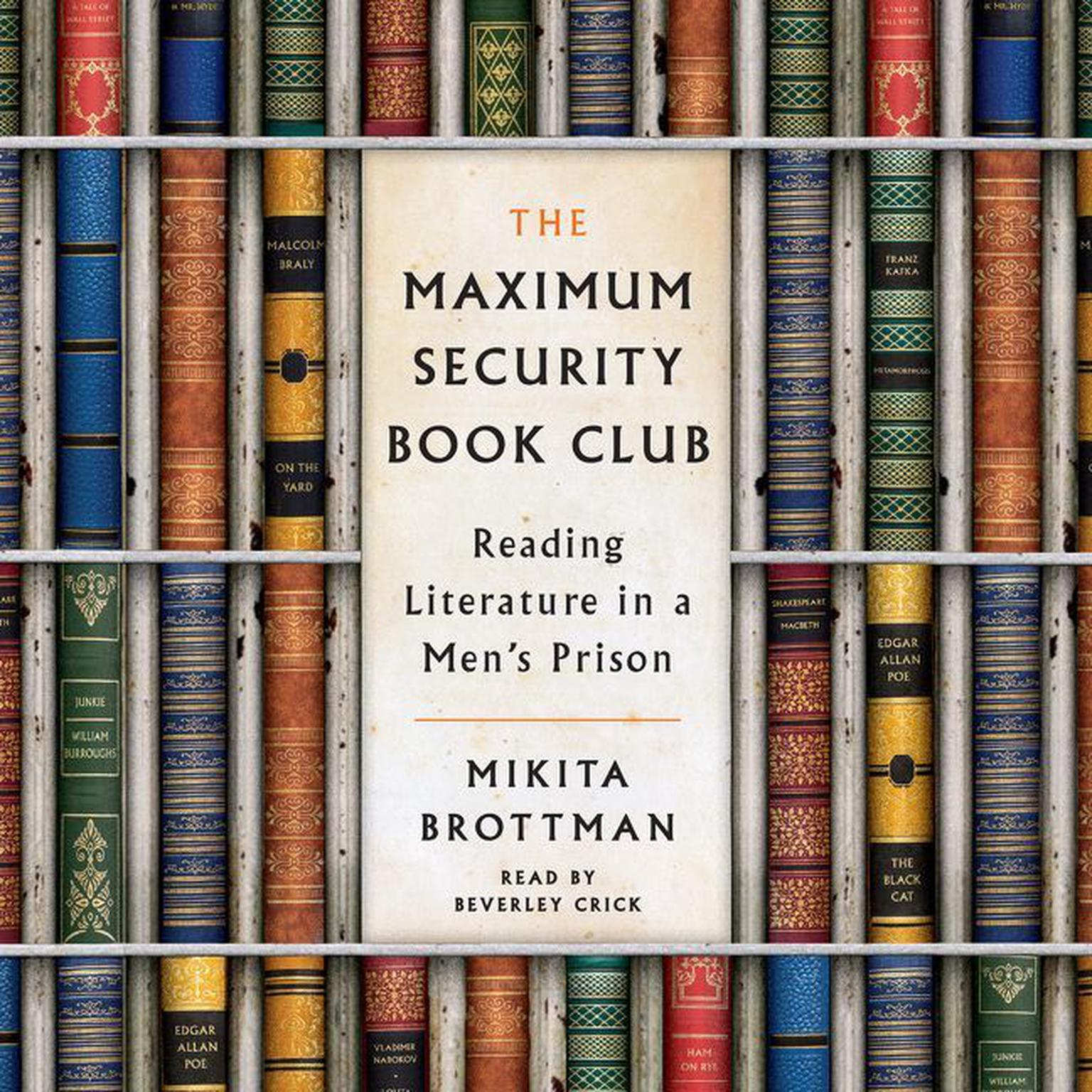 Play Audiobook Sample
Play Audiobook Sample
The Maximum Security Book Club: Reading Literature in a Men's Prison Audiobook
 Play Audiobook Sample
Play Audiobook Sample
This audiobook is no longer available through the publisher and we don't know if or when it will become available again. Please check out similar audiobooks below, and click the "Vote this up!" button to let us know you're interested in this title. This audiobook has 0 votes
Quick Stats About this Audiobook
Total Audiobook Chapters:
Longest Chapter Length:
Shortest Chapter Length:
Average Chapter Length:
Audiobooks by this Author:
Publisher Description
A riveting account of the two years literary scholar Mikita Brottman spent reading literature with criminals in a maximum-security men’s prison outside Baltimore, and what she learned from them—Orange Is the New Black meets Reading Lolita in Tehran.
On sabbatical from teaching literature to undergraduates, and wanting to educate a different kind of student, Mikita Brottman starts a book club with a group of convicts from the Jessup Correctional Institution in Maryland. She assigns them ten dark, challenging classics—including Conrad’s Heart of Darkness, Shakespeare’s Macbeth, Stevenson’s Dr. Jekyll and Mr. Hyde, Poe’s story “The Black Cat,” and Nabokov’s Lolita—books that don’t flinch from evoking the isolation of the human struggle, the pain of conflict, and the cost of transgression. Although Brottman is already familiar with these works, the convicts open them up in completely new ways. Their discussions may “only” be about literature, but for the prisoners, everything is at stake.
Gradually, the inmates open up about their lives and families, their disastrous choices, their guilt and loss. Brottman also discovers that life in prison, while monotonous, is never without incident. The book club members struggle with their assigned reading through solitary confinement; on lockdown; in between factory shifts; in the hospital; and in the middle of the chaos of blasting televisions, incessant chatter, and the constant banging of metal doors.
Though The Maximum Security Book Club never loses sight of the moral issues raised in the selected reading, it refuses to back away from the unexpected insights offered by the company of these complex, difficult men. It is a compelling, thoughtful analysis of literature—and prison life—like nothing you’ve ever read before.
Download and start listening now!
“Narrator Beverley Crick recounts Brottman’s observations of prison life, the reading group’s members, correctional officers, and, especially, the discussions of nearly a dozen works taken up by the group. She clearly differentiates Brottman, who is British, as well as black and white men of various ages and personalities and a few female guards…As a bonus, the book group’s responses to such widely varying titles as MacBeth, Burroughs’ Junkie, and Malcolm Braly’s classic American prison novel On the Yard, may inspire further exploration by the listener.”
— AudioFile
Quotes
-
“[A] fascinating and unvarnished book about criminals as rough-hewn literary critics.”
— Wally Lamb, New York Times bestselling author -
“A brave and admirable book about a brave and admirable project.”
— William Deresiewicz, New York Times bestselling author -
“[A] wonderfully witty and deeply honest report.”
— Sheila Heti, New York Times bestselling author -
“This memoir’s energy emanates from Brottman’s sharp understanding of group dynamics and her determination to avoid clichés. She delves into the personal stories of the men she met behind bars and is clear-eyed both about literature’s powers and its limitations.”
— Los Angeles Times -
“Charming…In the end, the club shows how reading literature can be a moral project, a workshop open to all.”
— Boston Globe -
“When Brottman writes, she’s a virtuoso: poised and sure-footed, confident and graceful, witty and relaxed.”
— Baltimore Sun -
“Brottman chronicles not only the group’s literary challenges but her own evolving efforts to relate to the suffocating culture of prison life.”
— BookPage -
“An interesting look at the intersection of prison life and literature.”
— Publishers Weekly -
“Great literature reassessed in a gritty world far removed from academe’s ivory towers.”
— Booklist -
“Recommended for students and employees in the field of corrections and for instructors of literature who are open to new perspectives on the titles Brottman chose.”
— Library Journal -
“Brottman’s own literary discussion is thoughtful, but the main appeal is the developing bond with her allegedly unsalvageable students, whose warmth and perceptiveness constantly surprise her…A brave and empathetic story of how literature brings light into shadows.
— Kirkus Reviews -
“One of the best books about teaching I’ve ever read, it is not only lively and engaging from the first page to the last but dazzles by virtue of its honesty, sympathy, and humanity.”
— Phillip Lopate, author of To Show and to Tell -
“Beautifully captures the banal insanity of prison life in America while exploring the power of literature to transform, reform, and illuminate.”
— Kim Wozencraft, author of Rush
Awards
-
A BookPage Top Pick for June 2016
-
A BookRiot Pick for New Books of June 2016
-
A Los Angeles Times Favorite of 4 New Nonfiction Books Not to Be Missed
The Maximum Security Book Club Listener Reviews
Be the first to write a review about this audiobook!
About Mikita Brottman
Mikita Brottman, PhD, is an Oxford-educated scholar, author, and psychoanalyst. She has written several previous books, including The Great Grisby and Thirteen Girls, and is a professor of humanities at the Maryland Institute College of Art in Baltimore. She lives in Baltimore and continues with her weekly reading group at Jessup Correctional Institution.
About the Narrators
Beverley A. Crick is an actress, narrator, and accomplished voice-over artist. Her credits include film, television, commercials, radio, corporate narrations, looping, theater, comedy, and hosting.
Beverley Crick is a New York–based actress, accomplished voice-over artist, and audiobook narrator. Her narrations include The Diabolical Miss Hyde and The Grief and Loss Cure.





